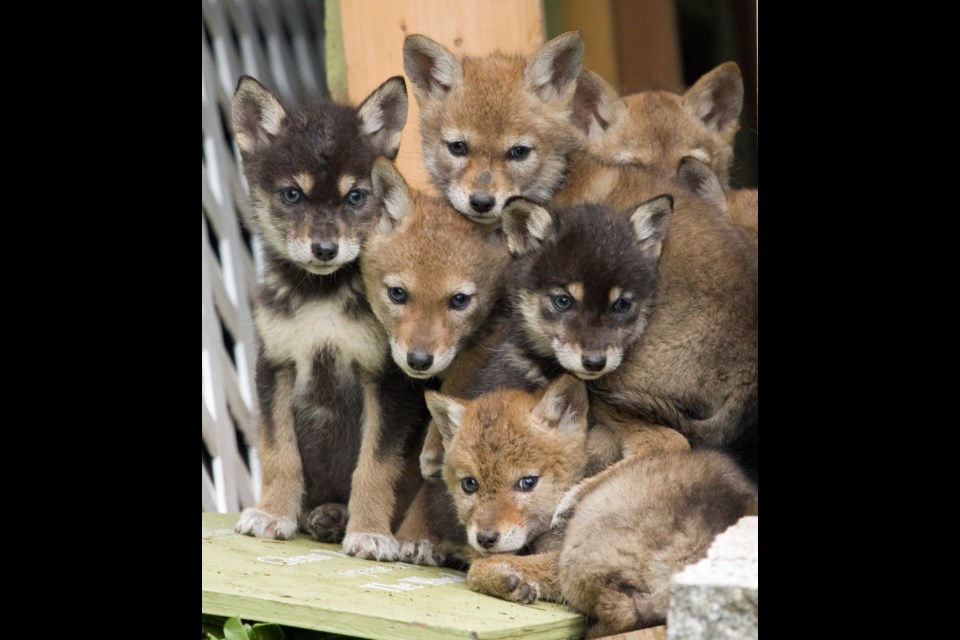With new pups to feed and protect, coyotes may be more aggressive during the spring, according to a wildlife expert.
Coyotes are sighted all over New Westminster, but Denise Beeder, animal services officer, says there are higher concentrations in certain neighbourhoods.
“(Most of the) complaint calls are from the Queen’s Park area … the west end. We also have Glenbrook Ravine,” she says. “Those are the ones where we hear a lot of those complaints.
There was a recent sighting of a coyote running down 10th Street, says Beeder, who strongly recommends keeping cats indoors and small dogs on a leash.
“I can’t stress that enough,” she says.
In later spring, the young coyotes are the ones that are hunting during the daylight hours.
“If they are awake during the day, it usually means they haven’t eaten, they are still awake looking for food,” Beeder explains.
Dan Straker, urban wildlife programs coordinator for the Stanley Park Ecology Society, advises removing coyote attractants such as loose garbage, yard fruit and pet food, from yards and parks. By reducing attractants, the young pups will learn to hunt for their own favourite food, small rodents such as mice and rats, rather than learning to depend on people for food, Straker notes in a media release.
"Coyotes are very adaptable and elusive creatures that build their dens in well hidden areas of the city like secluded parts of parks and golf courses, behind thick blackberry bushes, and beneath abandoned buildings," he says in the release.
He also warns to keep an eye on house pets during this period.
"It is also another good reason to keep dogs on leash in green spaces and cats indoors, as canine curiousity can lead to conflicts between coyotes and pets," Straker says.
If you come across an active den site or see coyote pups, report it to the Co-Existing with Coyotes information phone line at 604-681-WILD and avoid the area.



